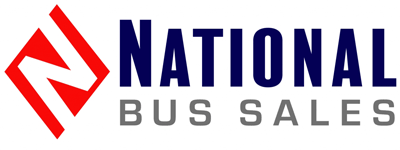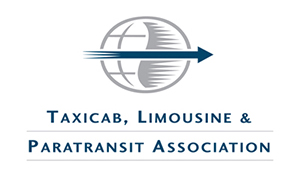- Details
- Category: Industry News
 Tulsa, Okla. — National Bus Sales announced a partnership with Metro Worldwide to increase their commercial, mobility and executive travel offerings. Adding Metro Express Ram ProMaster vans to the line-up of new and used school buses, activity buses, shuttles and motor coach equipment is part of an overall plan to build a comprehensive line of products.
Tulsa, Okla. — National Bus Sales announced a partnership with Metro Worldwide to increase their commercial, mobility and executive travel offerings. Adding Metro Express Ram ProMaster vans to the line-up of new and used school buses, activity buses, shuttles and motor coach equipment is part of an overall plan to build a comprehensive line of products.
“We are passionate about helping people find safe transportation solutions at an unmatched value, says Steve Henshaw, president of National Bus Sales who is excited about the addition. “By adding the Metro Express Ram ProMaster vans to our line, we are able to offer new vehicles using the same principle that our company was built on. We recondition used buses, shuttles and motor coaches to make them look and run like new, and we are now offering customized vans with every available option.”
The Metro Express Ram ProMaster platform provides many features and benefits with an extremely competitive pricing structure. Metro Express vans are available in the Metro Express Ram ProMaster 2500 and 3500 High Roof models. The ability to customize these vehicles in both Passenger and Mobility offerings make them an excellent choice for any operation.
Visit nationalbus.com for more information.
[CD0417]
- Details
- Category: Industry News
 Manesh Rath Partner at Keller and Heckman
Washington, D.C. — On March 30, International Limousine Service’s won a major victory in a landmark decision by the D.C. Superior Court when the District of Columbia Office of Tax Revenue withdrew its appeal that was issued on October 27, 2016.
Manesh Rath Partner at Keller and Heckman
Washington, D.C. — On March 30, International Limousine Service’s won a major victory in a landmark decision by the D.C. Superior Court when the District of Columbia Office of Tax Revenue withdrew its appeal that was issued on October 27, 2016.
International Limousine contested a tax on trips made across state lines on the basis of a federal preemption that bars states from taxing the interstate transportation of passengers. The D.C. Office of Tax and Revenue argued that the tax should apply to trips made to area airports. Judge Erik Christian, writing for the D.C. Superior Court Tax Division, held that the federal statute “acts as an absolute bar on the (District of Columbia’s) authority to tax … transportation of passengers in interstate commerce.”
The court’s decision puts an end to years of unfairly imposed taxes upon ground transportation of passengers to airports like Reagan National, Dulles International, and Thurgood Marshall Baltimore-Washington International airports. In addition, transportation firms might be able to seek refunds for prior years in which the District of Columbia improperly imposed those taxes. The implications for the industry—and for the District—are considerable, according to Manesh Rath, partner at Keller and Heckman, who represented International Limousine in the case.
 “The industry owes great gratitude to International Limousine for this result,” Rath noted. “Improvements in the law, and how agencies enforce those laws, can only occur because of conscientious businesses.”
“The industry owes great gratitude to International Limousine for this result,” Rath noted. “Improvements in the law, and how agencies enforce those laws, can only occur because of conscientious businesses.”
Because of International Limousine's success against the District of Columbia, other local governments nationwide will be less likely to try to improperly tax interstate transportation of passengers.
“This is a positive result, not only for International Limo, but for all passenger transportation operators in D.C. and around the nation,” Richard Kane, president and CEO of International Limousine stated.
The results were also published via Law360, an international resource for legal professionals. Since the day the article appeared (April 10), Rath reports that he has received calls from lawyers representing transportation companies as well as state’s attorney’s offices, asking to learn more about the case.
Visit internationallimo.com for more information.
[CD0417]
- Details
- Category: Industry News
 Former TLPA President Mike Fogarty of Tristar Worldwide
Rockville, Md. — The Limousine Alternative Business Model Task Force—chaired by former Taxicab, Limousine & Paratransit Association (TLPA) president Mike Fogarty of Tristar Worldwide—is drafting a report that will be reviewed and commented on by the Limousine & Sedan Steering Committee (open to all current TLPA Limousine & Sedan Division members) when it meets at the TLPA Spring Conference & Expo/Taxicab Paratransit Association of California (TPAC) Annual Meeting in Palm Springs, Calif., from April 25-28.
Former TLPA President Mike Fogarty of Tristar Worldwide
Rockville, Md. — The Limousine Alternative Business Model Task Force—chaired by former Taxicab, Limousine & Paratransit Association (TLPA) president Mike Fogarty of Tristar Worldwide—is drafting a report that will be reviewed and commented on by the Limousine & Sedan Steering Committee (open to all current TLPA Limousine & Sedan Division members) when it meets at the TLPA Spring Conference & Expo/Taxicab Paratransit Association of California (TPAC) Annual Meeting in Palm Springs, Calif., from April 25-28.
The following excerpts from the draft report offer a good idea of what the conference will cover:
The Transportation Network Companies (TNCs) have had a negative impact on all forms of for-hire passenger transportation. This trend not only cuts across all segments, but also most geographical regions. Even in New York City, where TNC vehicles and drivers have been held to the same licensing standard as traditional operators, TNCs have taken significant shares from taxi, livery, black car, as well as high-end limousine providers. Most other states have passed some form of regulation regarding TNC operations. Unfortunately, everywhere in the United States except in NYC, the regulation of TNC operations falls short of the requirements placed on other licensed, for-hire passenger transportation services.
 The TNCs have raised the bar of consumer expectations in the retail and corporate markets. When a corporate client calls to reserve a car ASAP, he/she really wants it now. Twenty- to 30-minute estimated times of arrival are no longer acceptable, as TNCs have a response time of five minutes or less in most major markets due to their scale (number of drivers), which gives them density of coverage. In addition to their scale, the largest TNCs have utilized vast amounts of capital to subsidize passenger costs, which has led to an expectation of lower rates for customers. Throw in a corporate client demographic that is growing more accustomed to technology coupled with increased expectations for immediate service at competitive rates, the traditional livery/black car/limousine industry must evolve or be replaced.
The TNCs have raised the bar of consumer expectations in the retail and corporate markets. When a corporate client calls to reserve a car ASAP, he/she really wants it now. Twenty- to 30-minute estimated times of arrival are no longer acceptable, as TNCs have a response time of five minutes or less in most major markets due to their scale (number of drivers), which gives them density of coverage. In addition to their scale, the largest TNCs have utilized vast amounts of capital to subsidize passenger costs, which has led to an expectation of lower rates for customers. Throw in a corporate client demographic that is growing more accustomed to technology coupled with increased expectations for immediate service at competitive rates, the traditional livery/black car/limousine industry must evolve or be replaced.
This Alternate Business Models paper will outline the efforts that several TLPA members are making to ensure the future success of their businesses. Although the initial impact has been the loss of some traditional sources of business, the TNCs have broadened the overall for-hire passenger transportation market. This will undoubtedly provide opportunities for traditional companies that evolve to meet the new customer demand. The areas of focus detailed in this paper include the following:
— Co-opetition/consortium model
— Integrating TNC business model into operations
— Consolidating livery/black car/limousine service in a national platform
— Focus on "Duty of Care" competitive advantage
— Diversify into larger vehicles and shuttle operations
— Expand event transportation and logistics capabilities
The draft report also outlines TLPA's recommendations for the association’s operators to upgrade their technology and operations to improve ease of use, speed of response, and reasonable rates while also moving into or strengthening more profitable segments of the business.
Visit tlpa.org for more information about both the report and the upcoming conference.
[CD0417]

